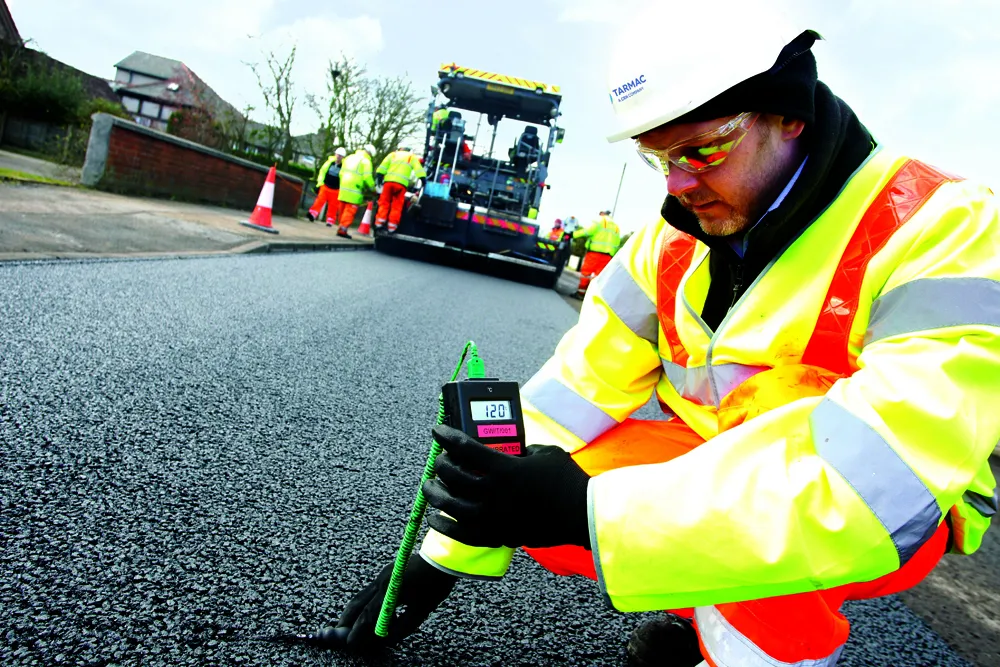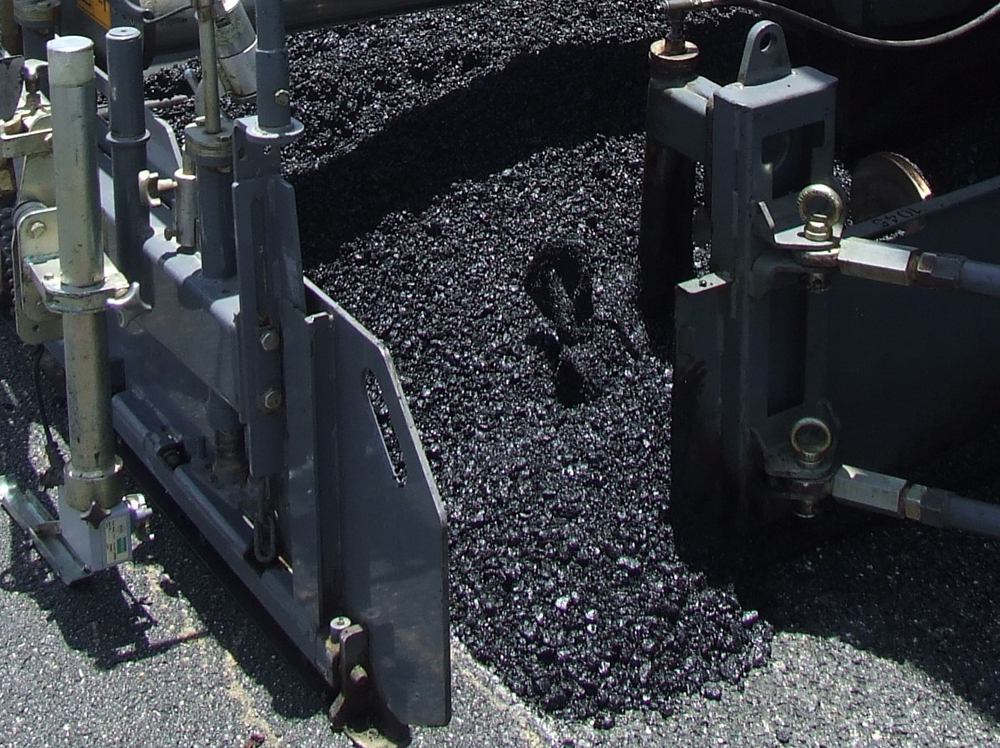
A number of key firms are now offering warm mix asphalt technologies that will improve wear life, while also delivering sustainable solutions for construction.
In the UK, contractor Tarmac is calling for a greater use of warm mix asphalt to reduce traffic disruption arising from roadworks.
An online survey of 1,000 UK road users was commissioned by Tarmac and conducted by market research company 4media Group. This survey shows that essential roadworks play a key role in getting people moving, but alongside the freedom to travel also comes the frustration of additional traffic delays, with 73% of those surveyed saying that their travel had been impacted by roadworks.
To ease the problem, Tarmac is encouraging local authorities across the country to embrace new thinking in road building and repair through the increased use of warm mix asphalt to help get traffic moving more quickly.

The solution involves laying asphalt at lower temperatures than conventional mixes. It can be laid faster, sets quicker and is more sustainable to produce. It also allows roads to reopen more quickly. As a result, Tarmac is calling on local authorities across the country to adopt warm mix asphalt as the default method of paving roads.
Warm mix asphalt is quick and easy to lay and requires less cooling time between courses, increasing the amount of material that can be laid in a standard shift, saving time and money. It is estimated that this method of road building and repair could save 60,000tonnes of CO2/year nationally.
Despite these benefits, a report from the All Party Parliamentary Group (APPG) for Highways has stated that the widespread adoption of warm mix asphalt has been slow. The report notes that adoption of warm mix asphalt in the UK currently stands at less than 4%, lagging far behind the US (40%) and France (15%).
Brian Kent, national technical director at Tarmac, said: “As we begin our road to recovery from the COVID-19 pandemic, it has never been more important for the construction industry to work together with local authorities and councils to adopt more sustainable ways of working.
“With carbon reduction at the centre of the Government’s Construction Strategy and many local authorities working to achieve net zero targets by 2030, warm mix asphalt is a proven materials technology that benefits road users, residents living around areas of roadworks, highways workforce who spend less time exposed to traffic during roadworks, and the environment."
Meanwhile, another UK contractor, Aggregate Industries, is also offering a carbon neutral variant of its SuperLow range of asphalt. Following its parent company LafargeHolcim in signing the Net Zero Pledge and the recent launch of its ECOPact low carbon concrete, this is the latest in a series of steps taken towards more sustainable materials by Aggregate Industries.
This new SuperLow product features reduced carbon levels when compared to standard asphalt as it is produced at reduced temperatures. All remaining emissions are offset through carbon reduction projects on the customer’s behalf through Aggregate Industries’ offsetting partner, Circular Ecology, all without any change to product performance.
Guy Edwards, CEO at Aggregate Industries, said: “New, improved SuperLow is yet another step we are taking to supply more sustainable construction materials in order for the country to build greener."
With the mix requiring lower temperatures than traditional asphalts, SuperLow also cools more quickly, meaning repairs and resurfacing take less time. The cooler temperature also reduces binder ageing and boosts working life, allowing roads to last longer.

Similarly, a large supermarket firm in the UK, Tesco, is now specifying a warm mix asphalt grade for its car parks that will reduce emissions and improve sustainability. The firm has specified Hanson’s reduced emission asphalt (REA) for resurfacing works.
The product is produced using Hanson’s energy reducing asphalt (ERA) warm mix technology to provide a complete sustainable solution. REA uses Shell Bitumen FreshAir, a specialist binder, which helps reduce emissions from asphalt mixes by an average of 40% compared with conventional bitumen. It acts directly with some of the chemical compounds affecting air quality, as well as odour-releasing molecules, helping to cut specific gases and particulates or minimise their release into the air during production and paving.
Contractor NMC Surfacing has laid a total of 3,100tonnes of REA at Tesco car parks in Tadcaster (North Yorkshire), Whitchurch (Shropshire), Longton (Stoke-on-Trent) and St Helens (Merseyside). The firm also has plans to use this material to resurface more of its car parks over the coming months.
Gareth Day, Hanson UK asphalt managing director, added: “Using ERA realised a saving of 7,630kg of CO2 emissions, compared with conventional hot rolled asphalt, while the REA used is estimated to have a similar effect on the reduction of NOx as removing 366 cars from the road.”









